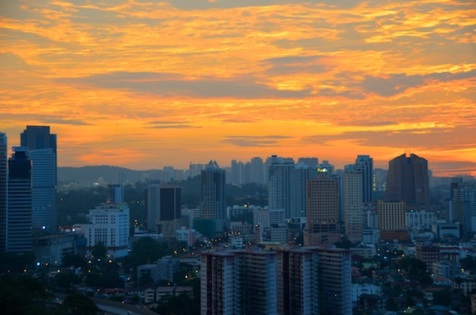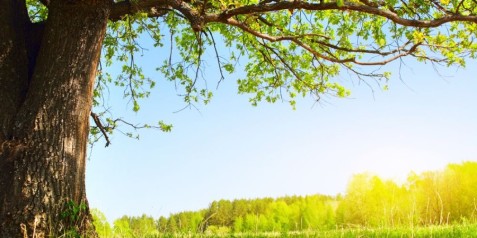By Enrique Lescure
Introduction
The Earth Organisation for Sustainability is not built around a specific programme which we slavishly believe should be implemented. Rather, our Design is intended to be broken and transformed during its progress, so it would adapt and form around the experiences we learn during its growth. When the Design is implemented, we will likely see it evolve around differing needs and conditions, locally and regionally, and would thus likely see regional adaptions, and would likely forever evolve, though the pace of evolution might differ between periods.
Likewise, we who are going to implement the experiments in sustainable ways to measure resources, flows and consumption patterns would also grow and learn during this process. In this way, being a part of the EOS is very much alike being a gardener.
However, there need to be criteria that should be fulfilled. The important thing is not how a system is working, but that it achieves the minimum goals that it strives towards. What is at stake is our beautiful planet, and sustainability is not only about cutting back, but also to find a way within which future generations can thrive inside a flourishing biosphere.
Our mission
Our mission is to find models within which we can create sustainable conditions for life on Earth. This means that we must ensure both ecological sustainability, and the future well-being of the human species on Earth. This all derives from a bio-centric view where Life is seen as the most valuable and dignified thing in the Cosmos. As a sapient species, with the ability to create culture, art and civilization, we have a duty, and that duty is to create conditions in which Life can blossom and reach its potential.
To be an EOS member should not only be to possess a card showing that you have paid a membership fee. It also signifies that you are an individual who by your will have taken up this mission – the mission to protect Life on Earth. There are no easy ways however, and even if everyone shared that sense of devotion to life on Earth, we would face stark challenges which would make us grow and learn as human beings.
But what we need as well are concrete, practical criteria which we could make our judgements from. I would not so much write about ideology and values in this post as about some minimum criteria for a sustainable civilization on Earth.
1: Understanding the Earth
In this era, we will soon be nine billion individuals on this Earth. We have transformed the larger part of the Earth’s land surface to suit our needs. Our current socio-economic system, built on maximising economic growth as fast as possible, has devastated the biosphere, and we are right now in the beginning phase of what can be termed a mass extinction.
What needs to be known is of course how much, where, and how.
There needs to be a much better oversight over how much resources we are using, how much resources we can use, how to optimize the use of the resources. We also need to monitor eco-systems in real-time, so we can respond to disturbances quicker than today and with more knowledge of the situation locally. We need to understand where resources are harvested, and where they are going, and where they could return to nature again.
If there is limited data gathering in a situation like today (and for the foreseeable future given how much we have wrecked), there is higher likelihood that we will do wrong and accidentally wreck the ecological progress we want to support.
This knowledge needs to be transparent and available for everyone, a living library of the Earth, accessible through every media, open to reevaluation. It would become the basis for a common, unified understanding of the Earth for ecologists, biologists, agronomists, economists and human beings from all over the planet.
We need a basis for a common worldview, and this worldview must be rooted in our physical reality.
Some may interject that we did not need this before the industrial age and that it is sufficient if everyone strives to be sustainable. The problem with this is that we have 9 billion people on this planet soon, and they all should be given the basis for being able to thrive on Earth. They need energy, utilities, housing, education, healthcare, recreation and community participation, as well as private space. That guarantees that we would need to use the resources of the Earth – and that implies that we need wise stewardship of the planet.
2: A circular economy
It is not enough to monitor resource flows, but a constant process to reduce resource pressure. Also, infrastructure would need to be redesigned to be adapted to optimal usage, upcycling, recycling and downcycling. This would reflect itself in changed production patterns, transformative usage of utilities, more local and regional production (thus less need for transportation) and lastly – and most controversially – a redirection of the priorities of the economy.
In terms of production patterns, we should look towards producing things that are durable, modular and upgradeable, which would lengthen the life-cycle of products and reduce their ecological impact per unit. We should also look towards using space more effectively in production, for example in that different groups could use the same factory installment to produce different things during different hours of the daily cycle. This would reduce the amount of bottlenecks. This would also imply more open source (which I will expand on in a future post).
In terms of food production, we must strive towards diversifying production and ensuring food sovereignty as far as possible to every region. We need to reduce land usage, by reducing our dependency on animalic foods. We need to opt for a wiser usage of fresh water, a resource becoming increasingly scarce. We also need to grow more in cities and in vertical farms, and to transition from highly destructive mono-cultures as soon as possible.
In terms of utilities, we need to reduce our reliance on roads, parking spots and using space, by increasing reliance on designing societies where people can walk or bicycle, and where public transit is available for everyone. We also need to improve the sewage systems and design them with the thought of making human waste a valuable addition to the production of food, rather than something which should be flushed down into the sea (contributing to the strangulation of marine lfe).
And lastly, we need to reduce consumerism, or altogether replace this culture with a culture which accentuates other values. This is a process that must grow from the inside of human beings, and which must blossom through communities in a voluntary and participatory manner. However, a movement towards this can be helped by removing or reducing the amount of commercialised information in public space – information intended to make people maximise their consumption.
EOS wants to move a step further, and would like for things to only be produced when people actively are asking for them.
3: A socially sustainable civilization
For a depressing majority of the Earth’s population, life is about survival. Human beings are degraded, over-worked, outcrowded and forced out of their own lives into situations where their natural creativity and curiousity are unable to blossom. For billions of people, living on Earth is a horrible struggle against hunger and privations, and this condition is not only inflicted on those who suffer through it, but on their children as well.
By creating a world based around the needs of exponential growth, we have created a world where life – including human life – is primarily seen as an engine for this growth to continue.
While the moralistic imperative that everyone should be equal in terms of material wealth can be rightfully questioned from many angles, there are many people on this Earth which seem to have been deprived from their right to food, to fresh water, to education, to healthcare, to clothes on their body and roofs over their heads.
A sustainable civilization needs to provide an income floor, on which all human beings should be able to stand. That does not imply that everyone should be equal, but there should be a minimum standard under which no human being should sink. No one – especially not a child – deserves to be starving, homeless, illiterate or denied access to healthcare.
Ultimately, life should be an opportunity for every human being to grow and to reach their own highest potential, not something which they are forced to endure by artificial lack of resources.
Human beings deserve to live, and life should be more than mere existence.
This also means that all mature human beings have the right to form their own values and opinions, to organise peacefully and to be free from religious, sexual, racial or political persecution, and to be able to participate both in their communities and in the human civilization as a whole in a manner which gives them considerable influence over their communities and control over their own lives.
As we learn how to use resources more wisely, and as new technologies are implemented, all human beings should be able to partake in the progress, because civilization is our common heritage, not the property of an elite.
Summary
The three criteria can basically be summarized as:
1: A continuous survey of the Earth
2: A circular economy using resources within the Earth’s limits
3: A universal basic income
If we have achieved these criteria, we would have reached a form of sustainability. Of course, there is also a fourth criterion, and that is to achieve the above-mentioned three in a manner which reflects the values of the society we want to create. We must use ethically sustainable methodologies grounded in values that respect and uphold Life during the transition process towards a sustainable future.
We are living during the most awesome era in human history, and have been given the opportunity to prove that we are a truly intelligent and sapient species.
Now all we have to do is to organise and save the planet! So what are we waiting for?





